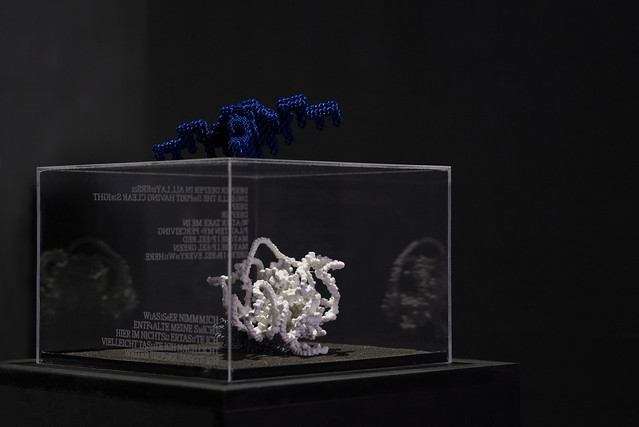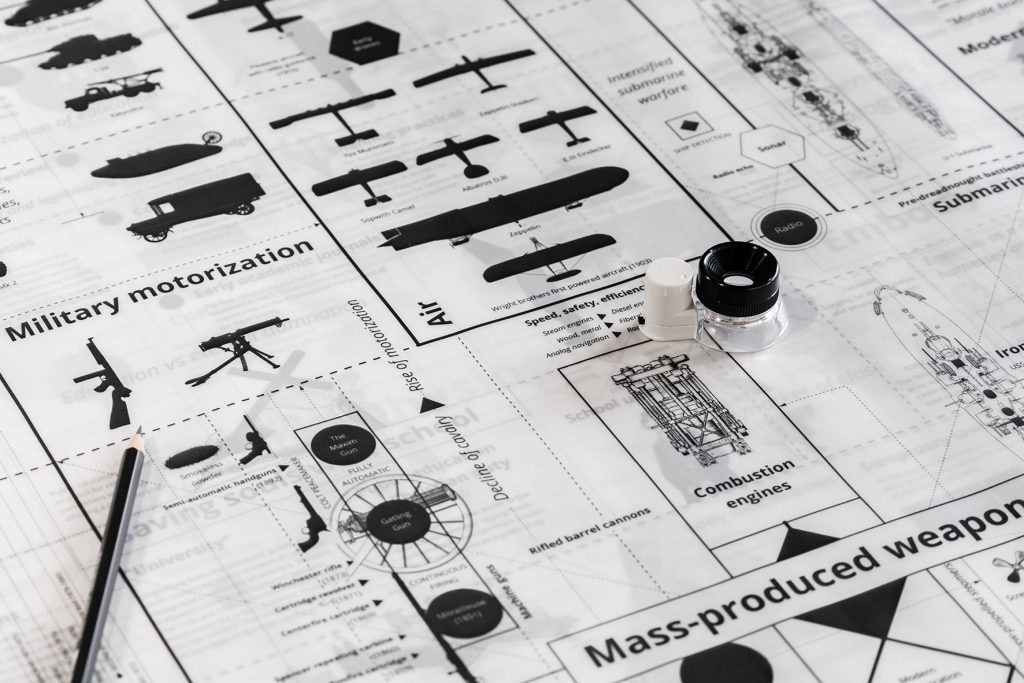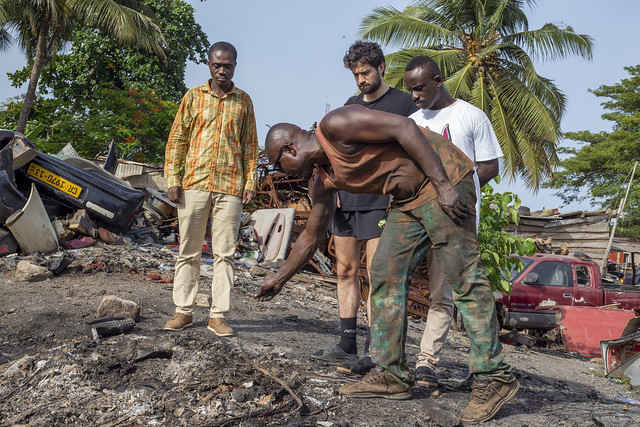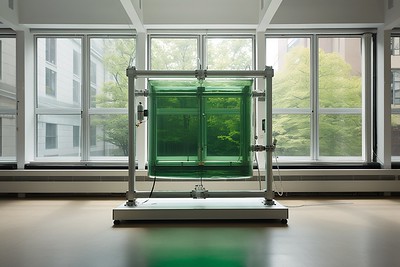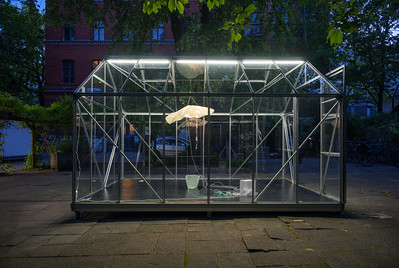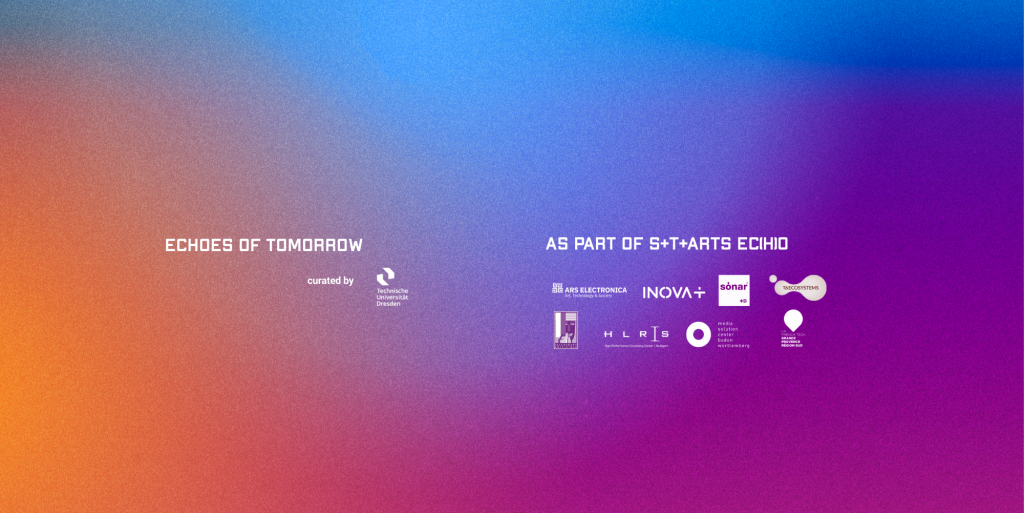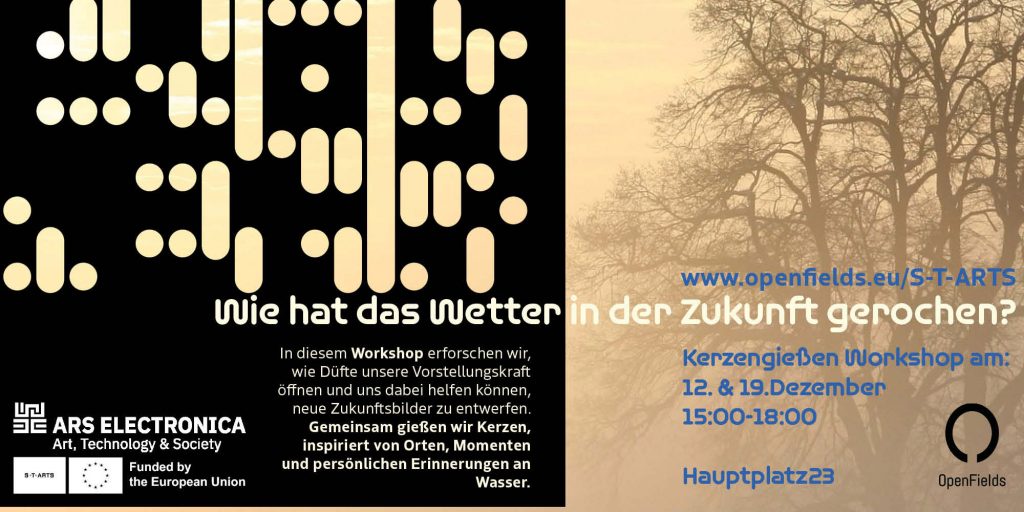S+T+ARTS at Ars Electronica Festival 2024
HOPE – who will turn the tide
Ars Electronica 2024 will take place in Linz from September 4 to 8 and will be dedicated to the title “HOPE – who will turn the tide”. Like never before, the Linz Festival for Art, Technology and Society will focus on artists, researchers, developers, activists, and entrepreneurs from all over the world. The main location will once again be POSTCITY, which is due to be demolished and will become a hotspot for the international media art scene for the seventh time.
The festival is a platform, stage, forum and laboratory at the same time for presenting and discussing interim results together with its many partners and initiatives, such as S+T+ARTS.
S+T+ARTS promoted events during the festival
Workshops
Critical Cartography of the New Extractivism
Vladan Joler (RS)
Fri 6. Sep 2024 13:00 – 15:00 – POSTCITY
Researcher and artist Vladan Joler dissects the various layers of the superstructures underlying planetary-scale communication and computation systems. This workshop explores different theoretical concepts related to the topics of power, control, digital labor, and exploitation. It is designed to help us understand the complexities enabling the new structures of power hidden behind the screens of our devices.
Supported by S+T+ARTS in the City.
Low Carbon Food System
Ling Tan
Thu 5. Sep 2024 12:30 – 14:30 – POSTCITY
Tackling the climate crisis through our food system and culture
In the workshop, participants will engage in discourse about migrant food culture, while learning about the food system through the lens of diverse Chinese food. This includes exploring different low carbon ingredients, cooking techniques and food sources that, in combination, still retain the core essence of authentic Chinese food culture.
Supported by S+T+ARTS in the City.
Into the E-Metropolis
Akwasi Bediako Afrane, Anwar Sadat Mohammed, Cyrus Khalatbari
Sat 7. Sep 2024 13:00 – 15:00 – POSTCITY
Into the E-Metropolis: TRONSFORMATION is a workshop facilitated through hacking.
It is designed to capture participants’ narratives and perceptions of sustainability with regard to consumer electronic devices. During this hands-on workshop, visitors will have a chance to build something new out of old electronic materials.
Supported by S+T+ARTS in the City.
The Solar Share
DISNOVATION.ORG
Wen 4 to Sun 8 Sept 2024 -16:30 – 16:00 – POSTCITY
Daily Harvest Performance.
The Solar Share stages a form of planetary economics based on photosynthesis. Every day a microalgae culture converts sunlight into edible biomass. The yield of the 1 sq.m bioreactor is a concrete means of measuring solar income—actual new energy entering the Earth’s metabolism.
The harvest will retrieve this yield and prepare it for storage. The workshop includes a walkthrough of the project, the science behind it and an opportunity to discuss the implications with the artists.
Lectures & Talks – S+T+ARTS DAY
Reclaim, Relearn, Resist: Strategies and Practices for the Future of Digital
S+T+ARTS Day Conference
Thu 5. Sep 2024 11:00 – 17:00 – POSTCITY, Conference Hall
This year’s STARTS Day Conference sets out to re-tell the story of inevitable technological progress as contingent and contextual, the result of decisions dictated by particular desires, interests or preferences. To back up this narrative, we spotlight brave initiatives and projects that open up other paths and bifurcations on the road of technological progress that can restructure the digital and, with it, social, economic or political realities.
Throughout the day, diverse practices—brought together in unlikely and perhaps curious constellations—will create a many-voiced narrative. Actors from business and industry, civic society, government and policymaking, as well as grassroots initiatives and artistic visions come together to show the many forms of action both stemming from and generating a sense of hope.
We unpack what it takes to build futures in which technology serves democracy, social justice, and users and look at how digital innovation is currently being used in practices to reimagine educational, economic, and other models.
Preliminary schedule:
11:10 – 11:50 Culture, democracy, the rule of law and the critical practice of AI – Keynote by Paul Nemitz (DE)
The idea that an innovative and positive future will emerge from artificial intelligence is misguided. It is time for us to stand up for the primacy of democracy over technology and business models. The European Union’s AI regulation demonstrates that it is possible to democratically contain the power of technology and its business models. Technology itself does not invent the language it needs to describe its inventions. And it does not command the human imagination of the non-existent, of which art reminds us every day, and which is the basis for human and societal progress towards freedom and justice.
11:50 – 12:35 Reclaiming Digital Technologies | Is breaking up Big Tech enough? – Panel Discussion with Francesca Bria (IT), Jillian C. York (US), Christoph Knogler (AT), Frederike Kaltheuner (DE)
The concentration of power that makes and runs the present digital ecosystem signals a need to reclaim digital technologies. But in a paradigm that allows, if not encourages, monopolistic tendencies, is breaking up Big Tech enough to ensure new technologies – even when developed by a more diverse range of actors – operate differently? Reclaiming digital technologies might be a political and economic question, rather than a technological one. We bring Jilian York, Francesca Bria and Christoph Knogler to discuss what it takes for digital ecosystems to become more democratic, socially just, and serve users – individuals and businesses big and small – rather than tech giants.
13:20 – 14:10 Alternatives | Digital Technologies for New Economic Models – Lightening presentations by Agnes Aistleitner Kisuule (AT), Petia Niederländer (AT), Rafael Madureira dos Anjos (BR) and Fireside chat on the Entrepreneurship in the Digital Age
Can alternative, individual uses of technologies give us a glimpse into how systemic change might look like? We spotlight three examples that use new technologies to reimagine financial and economic models or hold governments accountable for their spending.
A fireside chat moderated by Rita Isiba zoom into Agnes Aistleitner’s journey from being an entrepreneur to investing in companies that transform the FinTech landscape on the African continent, from her initial motivation to the learnings and challenges encountered along the way.
14:10-15:00 Alternatives | Digital Technologies for Education – Maha Bali (EG), Martin Hollinetz (AT), Martyna Marciniak (PL), Sowjanya Suraj (IN), Karin Gabriel (AT), Eva Knibbe
Digital technologies caused a shift in our educational models, from opening up new possibilities (online learning, EdTech) to requiring new forms of (digital/visual) literacy. We spotlight five examples to illustrate the multitude of approaches to education *through* digital technologies and literacy *about* the digital landscape we navigate daily. In a following panel discussion Martyna Marciniak, Maha Bali, Paulien Geerlings, Eva Knibbe and Martin Hollinetz discuss how digital technologies force an update of educational models, methods, and approaches and how each of them addresses this shift.
15:10 – 16:00 Calculating Empires: Mapping Technology and Power Across Time
Kate Crawford (AU), Vladan Joler (RS), Frederike Kaltheuner (DE)
How can we understand the operations of technology and power in our era? Our technological systems are increasingly complex, interconnected, automated and opaque. The industrial transformations in AI are further concentrating power, while accelerating polarization and alienation. But these forces are part of a longer set of trajectories. If we are to address the urgent challenges of the contemporary time – including climate catastrophe, colonial wars, and wealth inequality – we need to contend with the interwoven nature of their histories.
In this lecture, Kate Crawford and Vladan Joler will address how they explored these issues in Calculating Empires: A Genealogy of Technology and Power Since 1500, their award-winning, large-scale research visualization that tracks imperial systems over five centuries. By merging research and design, science and art, Joler and Crawford provoke us to go beyond the current spectacles of AI to ask how we got here—and consider where we might be going.
16:10 – 17:00 Alternatives | Digital Technologies of Hope – Albert Ortig (AT), Apolinário Passos (BR), Thomas Nayer (AT), Claudio Silvestrin (DE), Frederike Kaltheuner (DE)
A true cabinet of curiosities of the digital age, the practices presented at the end of STARTS Day create a sense of hope through their nature and focus, as well as their diversity. They become a collage of intentional, thought-through uses of digital technologies that can help us envision a deliberate digital future – one we can hope for and act on, rather than one that presents itself as inevitable.
Supported by S+T+ARTS in the City.
STARTS Exhibition
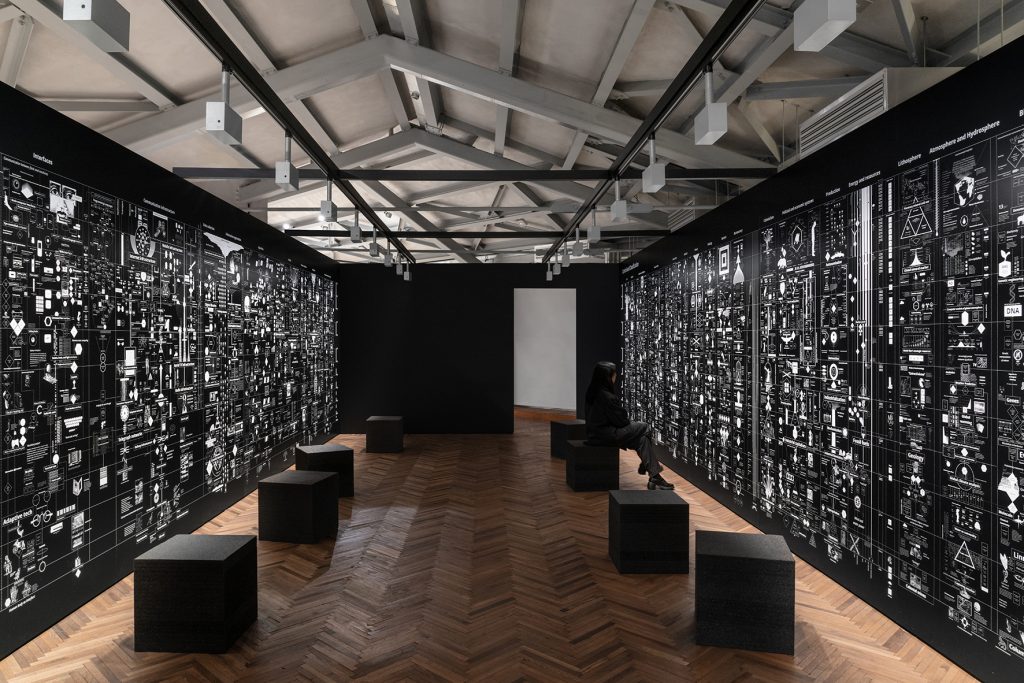
by Kate Crawford and Vladan Joler, Credit: Piercarlo Quecchia
Where Artists Shape Innovation
September 4, 10h00 – September 8, 18h00 CEST – POSTCITY
The triangle of science, technology and art has emerged as a catalyst for creative solutions and alternative visions for our present and future. Why? Because it—and art above all—produces the disruptive innovations we need to become more empathetic and determined in our way to confront pressing issues. How can we contribute to fostering a culture where the arts, science and technology thrive as interconnected and mutually enriching modes of exploration, knowledge and discovery?
The STARTS exhibition sheds light on the impressive and wide-ranging roles of artistic and creative communities, showcasing their potential to act as inspirations and driving forces during these times and beyond. From individual artists to larger institutional efforts, the exhibition highlights projects and initiatives that are actively working to bring about change through their innovative ideas and actions.
The exhibition opens with Calculating Empires: A Genealogy of Power and Technology, 1500-2025, a large-scale visual manifesto by Kate Crawford and Vladan Joler. It not only maps our technological present based on a five-century-long history but also encourages us to rethink how we relate to today’s social, political and technological systems. By asking how we got here, the artists call for the reflection on what the next step might be.
A Way Forward
But is it the only way to look into our past, and, thus, to think about our future? There is no singular view of history; instead, there is a multitude of perspectives that highlight the necessity of foregrounding as a catalyst for dialogue and collective actions those that have been previously oppressed.
With the help of technologies, the artists gain the opportunity to bring their rich cultural knowledge to the global stage and safeguard it in an open and transparent manner, to foster a deeper understanding and connection to their heritage, to engage with the audience and provoke thought. The artworks presented not only contest the history, but also empower communities to actively react to the unfairness as in the Balot NFT project that becomes a radical model of restitution of both stolen art and occupied land. The only way to move forward is to acknowledge the role of situated knowledge in the process of invention and innovation. By examining the power structures of the past, we can learn valuable lessons and understand how technologies contribute to reshaping our narratives, offering hope for a more inclusive future.
Artistic Perspectives
What are the next steps? Artistic and creative communities have great potential in shifting the paradigms by bringing their alternative perspectives to the public attention. They continuously question established norms, seek ways to contribute to a more inclusive, accessible and empathetic world.
The exhibition features striking creative solutions and artistic-driven innovations of different scales: from individual artistic efforts, DIY prototypes and community-led experiments to multidisciplinary collaborations and large-scale long term partnerships. In their unique manner, the artists question the status quo of technologies today and develop alternative solutions, in order to rethink them in an environmentally friendly way, to adapt the most vital of them to harsh environments or reinforce them by merging with historical methods and practices. The artists also provide insights into otherwise mystified processes, helping to improve citizens’ technological literacy, especially in connection with the rapidly developing field of AI. This is particularly crucial in times when technological advancements go hand in hand with social and economic innovation.
